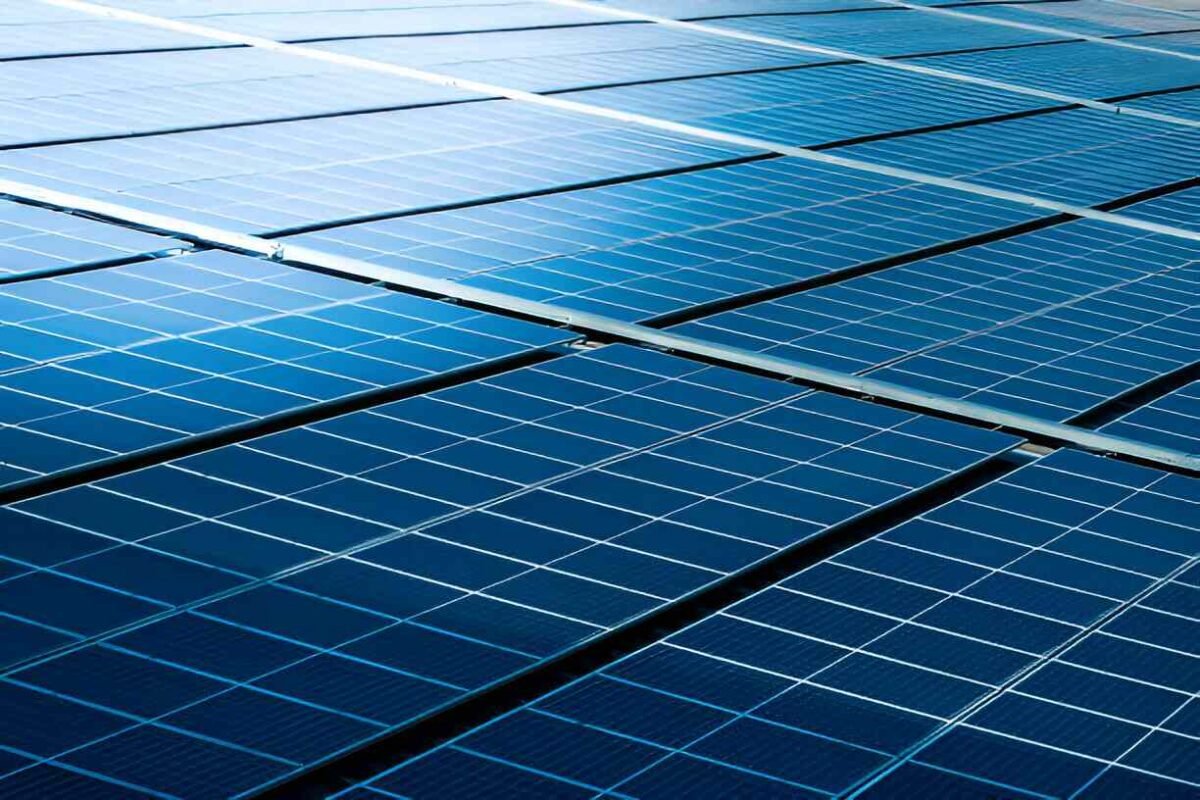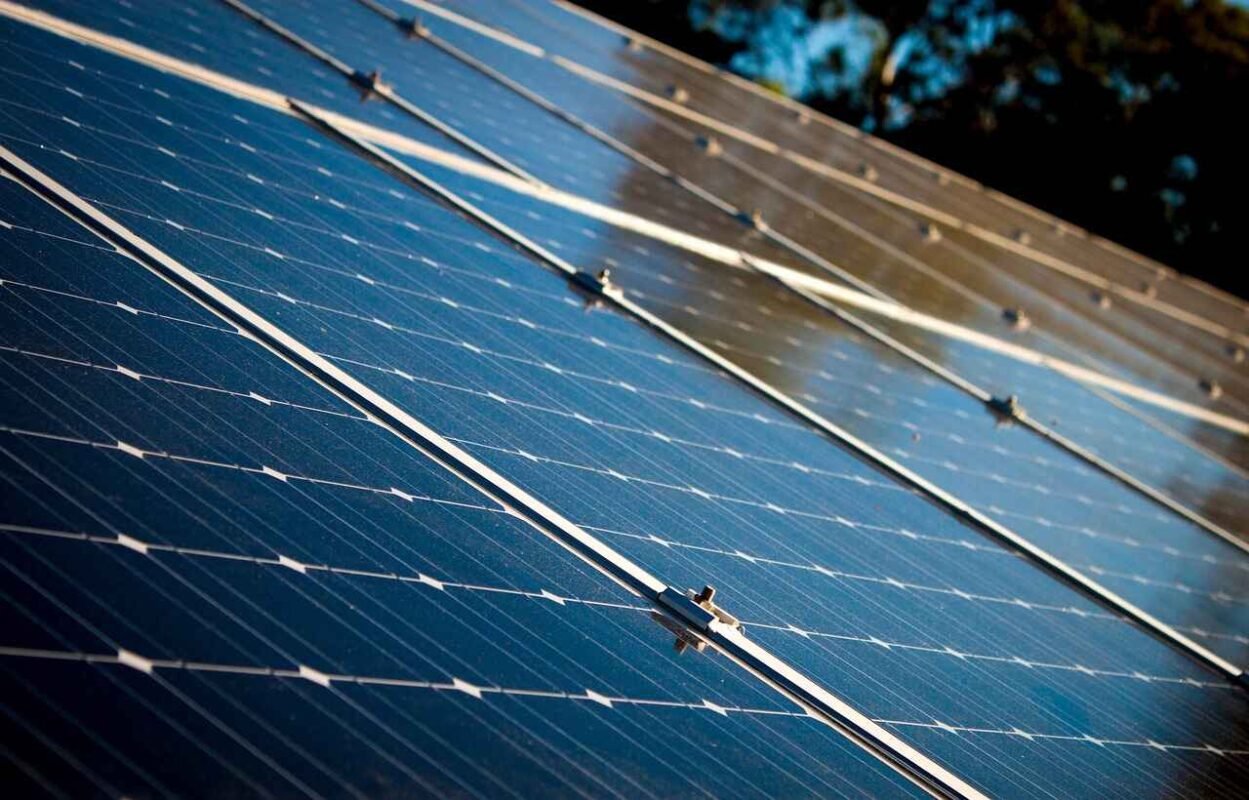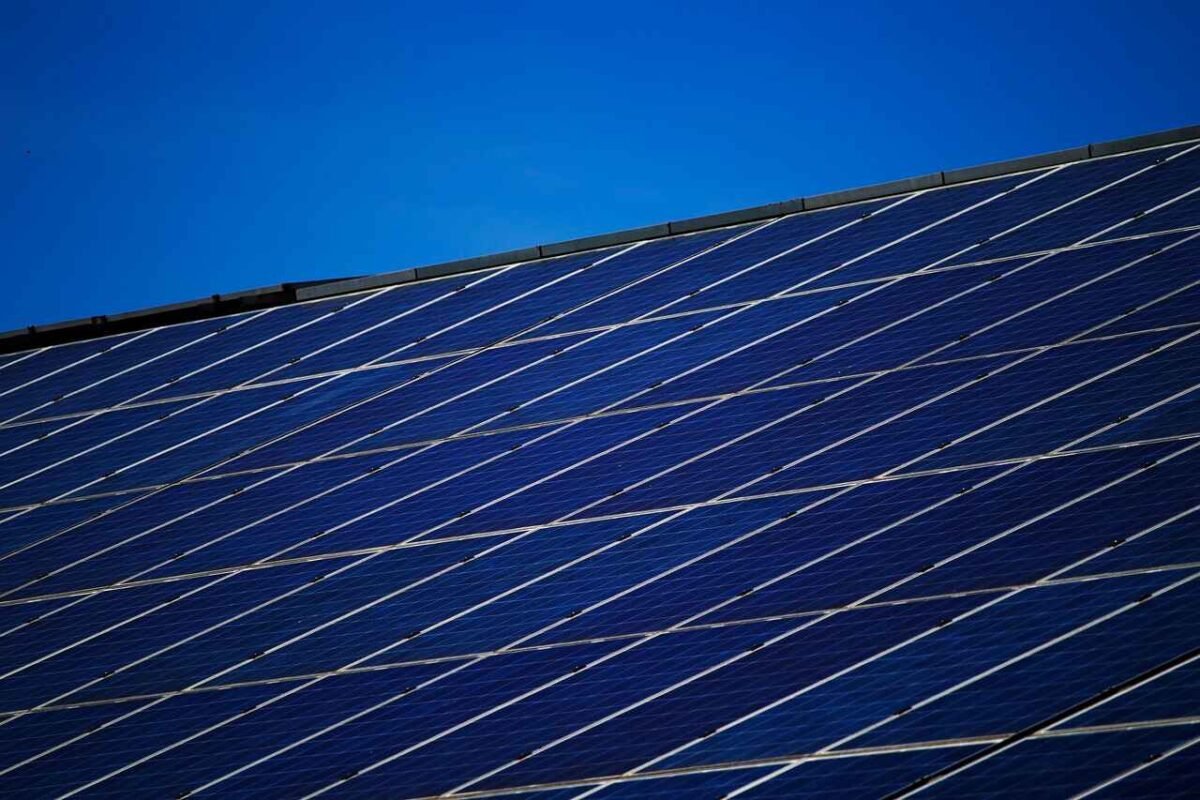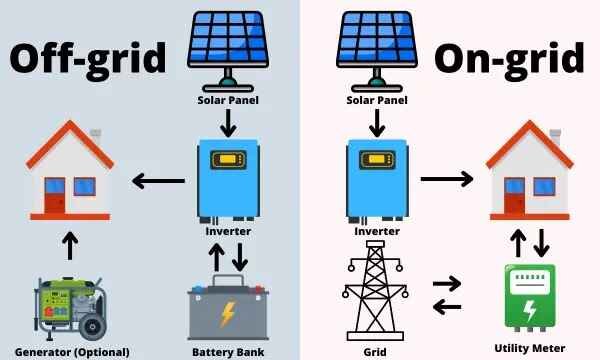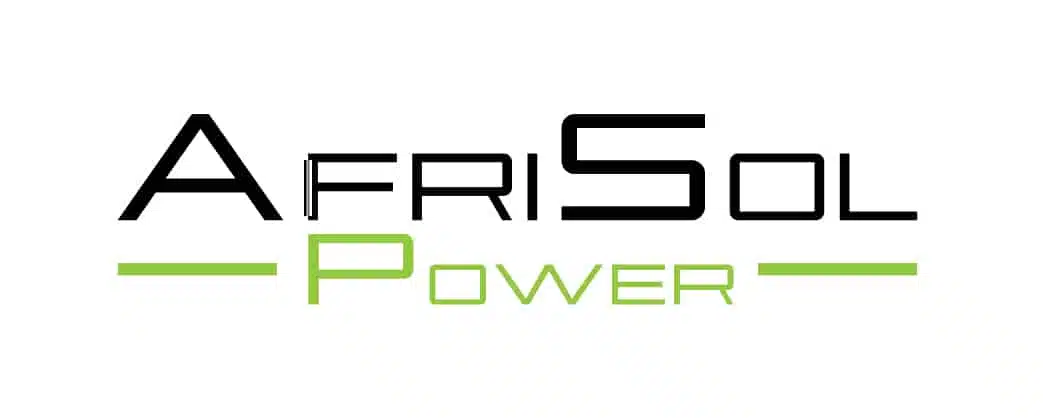Blogs
Solar Panel Installations in Ghana: Harness the Sun!
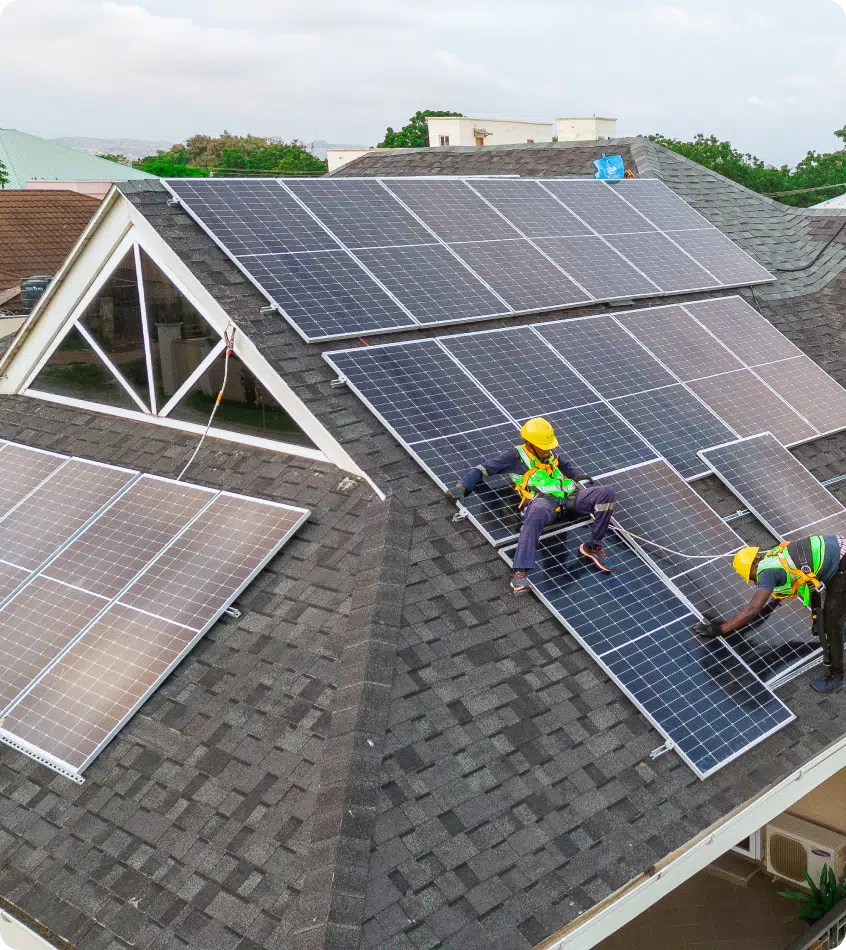
Solar Panel Installations in Ghana: Discover how to harness the sun’s energy for a sustainable future with efficient solar solutions.
Solar panel installations are on the rise in Ghana, marking a turn towards renewable energy. With abundant sunshine, the nation stands at the forefront of an energy revolution. This shift not only promises a greener future but also empowers communities and stimulates local economies.
Harnessing the sun’s energy is more than a trend in Ghana; it’s a practical solution to energy needs. Solar panels provide a reliable power source, reducing dependence on traditional electricity. They bring light to remote areas, where the grid can’t reach. As costs fall and technology improves, solar panels become an obvious choice for many. This introduction will explore why Ghanaians are embracing solar energy. We’ll see its impact on daily life and the environment. Join us as we delve into the bright world of solar panel installations in Ghana.
Introduction To Solar Energy In Ghana
Ghana embraces the sun’s power. With abundant sunshine, solar energy emerges as a leading resource. This introduction sheds light on Ghana’s solar journey.
Ghana’s Solar Potential
Ghana basks in tropical sunshine. The country boasts an average of about 5.5 hours of sunlight per day. This makes it ripe for solar technology. Solar panels can harness this energy, offering a sustainable power source.
- Annual sunshine: Over 2000 hours
- Peak sunlight: Between 5.5 to 6 kWh/m²/day
- Power stability: Solar can reduce grid dependency
Recent Trends In Renewable Energy
Renewable energy in Ghana gains momentum. Investments flow in as technology advances. Green energy becomes more accessible, and solar installations are on the rise.
| Year | Solar Installations |
|---|---|
| 2020 | Increased by 22% |
| 2021 | Growth by 35% |
| 2022 | Expected to rise by 50% |
Benefits Of Solar Panels
Embracing solar panels in Ghana brings many benefits. These include saving money and protecting our planet. Let’s explore the key advantages.
Cost Savings
Solar panels reduce electricity bills. Sunlight is free, so after installation, your energy costs drop. Many people in Ghana see their bills become much lower. This makes solar panels a smart choice.
Environmental Impact
Solar panels have a positive effect on the environment. They use the sun’s energy. This means they don’t produce harmful emissions. Cleaner air and a healthier planet result.
- By choosing solar, you help reduce the need for fossil fuels. This lowers greenhouse gases.
- Solar panels need little water to operate. This conserves our precious water resources.
Adopting solar power in Ghana is wise. It saves money and helps the Earth. A bright decision for a sustainable future.
Solar Panel Technology Explained
Ghana shines bright with solar energy potential. Solar panels are key in tapping this power. Let’s break down this tech.
Types of Solar PanelsTypes Of Solar Panels
Solar panels come in various types. Each has unique features and efficiency levels. Here are the main kinds:
- Monocrystalline: Made from pure silicon, they’re efficient and long-lasting.
- Polycrystalline: Easier to produce, they offer a balanced cost-to-efficiency ratio.
- Thin-film: Flexible and lightweight, they work well in diverse conditions but are less efficient.
Solar panels convert sunlight into electricity. Here’s a simple explanation of the process:
- Sunlight hits the solar panel.
- Solar cells absorb light, creating electric charges.
- Charges flow through the panel’s circuit, generating power.
Assessing Your Solar Needs
Embracing solar energy in Ghana offers a path to sustainable power. Before installing panels, assess your solar needs. Understanding energy requirements and site specifics is key. Begin with a clear plan for your energy future.
Calculating Energy Requirements
Know your energy usage to match solar panel output. Review electricity bills for monthly consumption. Use this data to estimate the solar capacity needed.
- List household appliances
- Record their wattage
- Note hours of operation
Combine this information to calculate total watt-hours. This figure guides the scale of your solar installation.
Site Assessment For Solar Installation
Choosing the right location affects solar efficiency. Inspect your property for unshaded areas. Check for south-facing spaces, ideal for solar panels in Ghana.
- Evaluate roof condition
- Consider ground-mounted options
- Assess local weather patterns
A professional assessment ensures optimal placement. It maximizes sunlight exposure and energy production. Engage a certified installer for accurate site evaluation.
The Installation Process
Embracing solar energy in Ghana is a smart move. The installation process is straightforward. Let’s dive into the steps and safety measures.
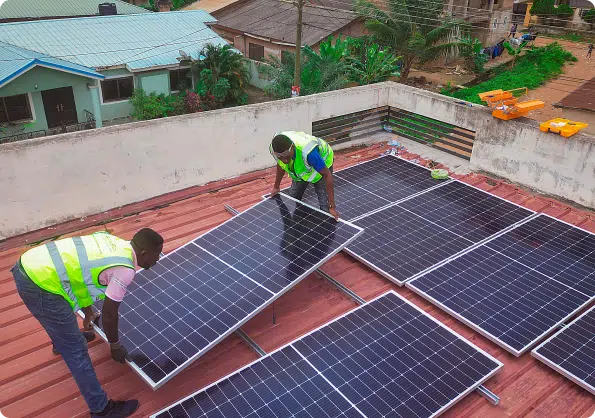
Key Steps In Solar Panel Installation
- Site Survey: Professionals visit your home. They check the roof and surroundings.
- Design and Planning: They design a system that fits your needs.
- Getting Permits: Necessary paperwork with local authorities.
- Installation: Workers install panels and connect systems.
- Inspection and Approval: Authorities check and approve the setup.
Safety And Compliance
Safety is key in solar panel installations. Workers use protective gear. They follow rules to ensure everything is safe. Compliance with local laws is a must. This means all paperwork and standards meet local guidelines.
Financing Solar Panel Installations
Financing Solar Panel Installations in Ghana can be a smart move. With abundant sunshine, solar power is a great resource. Yet, the initial cost can be high. Let’s look at options to make it affordable.
Private Financing Options
Banks and private lenders offer solar financing. These options include leasing and power purchase agreements (PPAs).
| Option | Benefit |
|---|---|
| Leases | No upfront costs |
| PPAs | Fixed energy rates |
People can spread the cost over time. This makes solar panels more accessible for many.
Maintenance And Longevity Of Solar Panels
Maintaining solar panels in Ghana ensures they last long. Proper care prevents damage and saves money. This guide covers basic maintenance and dealing with wear and tear.
Routine Maintenance Tips
Keeping solar panels clean is crucial. Dust and dirt reduce efficiency. Here are easy steps to follow:
- Check panels monthly for dirt.
- Use a soft cloth and soapy water to clean.
- Rinse well with clean water.
- Avoid cleaning during hot days to prevent cracking.
Trim trees regularly. Falling leaves and branches can damage panels. Keep the area clear.
| Maintenance Task | Frequency |
|---|---|
| Cleaning | Monthly |
| Inspection | Yearly |
Yearly professional checks find hidden issues. Technicians check wires and connections. They ensure everything works well.
Dealing With Wear And Tear
Solar panels last long but face wear and tear. Key points:
- Check for cracks and damage often.
- Replace damaged parts early.
- Watch for water damage signs.
Water damage affects panel efficiency. Seal any leaks quickly. Use quality materials for repairs.
- Inspect panels after heavy rain.
- Look for puddles or water marks.
- Seal leaks with waterproof sealant.
With these tips, solar panels in Ghana can last over 25 years. Regular care prevents big problems. Stay proactive.
Case Studies And Success Stories
Ghana shines as a beacon for solar energy in Africa. This section highlights real-life stories of solar panel success. From homes to businesses, these cases show solar power’s impact in Ghana.
Residential Solar Success
Homeowners in Ghana are embracing solar panels. They enjoy lower electricity bills and clean energy. One story stands out. John Mensah from Accra installed solar panels in 2021. His energy costs dropped by 50%. He now enjoys reliable power, even during outages.
- Cost Saving: John’s solar system cut his electricity bill in half.
- Energy Independence: He’s less reliant on the grid.
- Environmentally Friendly: His carbon footprint is smaller.
Commercial Projects Making A Difference
In Ghana’s business sector, solar power is a smart choice. Companies see big savings and help the environment. An inspiring example is Kumasi Market. They installed solar panels in 2020.
| Project | Impact |
|---|---|
| Kumasi Market Solar Installation | Electricity costs reduced by 60% |
This project not only cut costs but also improved local air quality. The market runs on clean energy, setting an example for others.
Navigating The Challenges
Solar panel installations in Ghana face hurdles. Tackling these ensures success. Let’s dive into the main challenges and find solutions.
Overcoming Technical Barriers
Technical know-how in Ghana is growing. Yet, it’s not widespread. Experts are few. Training locals in solar technology is key. It boosts installations and maintenance skills. Partnerships with global tech firms can help. They bring expertise and training programs. This strengthens local capacity.
- Train local technicians
- Partner with international experts
- Invest in local capacity building
Addressing The Upfront Costs
Solar panels can be pricey. The initial investment scares many. But, there’s a way out. Financial plans can ease this. Loans and grants are options. They break down payments. This makes solar energy accessible to more homes and businesses.
| Financial Aid | Benefits |
|---|---|
| Loans | Spread out payment |
| Grants | Reduce overall cost |
Local banks can offer green loans. These have lower interest rates. It’s a win-win. Users save on bills. They pay less interest. The environment benefits too.
The Future Of Solar Energy In Ghana
Solar energy in Ghana stands at the brink of a new era. With abundant sunshine, this renewable source promises to light up the country’s future. As technology advances and policies evolve, solar power becomes more accessible. Ghanaians eye a sustainable and cost-effective energy solution. Let’s explore the emerging trends and the role of policy in shaping Ghana’s solar landscape.
Emerging Trends In Solar Technology
Technological innovation drives solar energy forward. Ghana witnesses a surge in solar tech advancements. These trends aim to boost efficiency and lower costs. Here’s a glimpse of what’s on the rise:
- High-efficiency panels: New designs capture more sunlight.
- Battery storage: Better batteries mean reliable power, day and night.
- Smart grids: These balance supply and demand, improving stability.
- Portable systems: Small, mobile units bring power to remote areas.
Such trends position Ghana as a future solar powerhouse.
The Role Of Policy And Regulation
Policy shapes the solar sector’s success. Ghana’s government crafts laws to foster growth. Clear regulations attract investors and guide users. Key policy areas include:
| Policy Area | Impact |
|---|---|
| Incentives | Tax breaks and subsidies make solar affordable. |
| Building Codes | Integration of solar in new constructions is mandated. |
| Feed-in Tariffs | Producers sell excess power back to the grid. |
| Net Metering | Users offset costs with the energy they contribute. |
With supportive policies, solar energy in Ghana is set for a bright future.
Frequently Asked Questions
How Much Do Solar Panels Cost In Ghana?
The cost of solar panels in Ghana varies depending on their capacity and quality. On average, prices can range from GHS 1000 to GHS 10,000. The wide price range caters to different budgets and power needs, making solar energy accessible to many.
What Are The Benefits Of Installing Solar Panels?
Installing solar panels in Ghana offers numerous benefits including reduced electricity bills, environmentally friendly energy production, and increased energy independence. Solar power is a sustainable alternative, contributing to a greener planet by reducing carbon footprint.
Can Solar Panels Power A Whole House In Ghana?
Yes, solar panels can power a whole house in Ghana. The key is to install a system with enough capacity to meet your home’s energy needs. This typically involves a comprehensive assessment by a professional to determine the appropriate size and number of panels.
What Is The Lifespan Of Solar Panels In Ghana?
Solar panels in Ghana have a long lifespan, usually around 25 to 30 years. Despite harsh weather conditions, quality panels maintain high efficiency over time. Regular maintenance can further extend their service life, ensuring a good return on investment.
Conclusion
Embracing solar energy in Ghana is a smart move. It brings clean power to homes and businesses. Costs drop as sunlight turns into electricity. Ghana shines brighter with each solar panel installed. The country moves towards a greener future. Everyone wins with sustainable energy.
Let’s keep building that brighter tomorrow. Your next step could light up lives. Join the solar movement in Ghana now. It’s time to make a change for the better.















